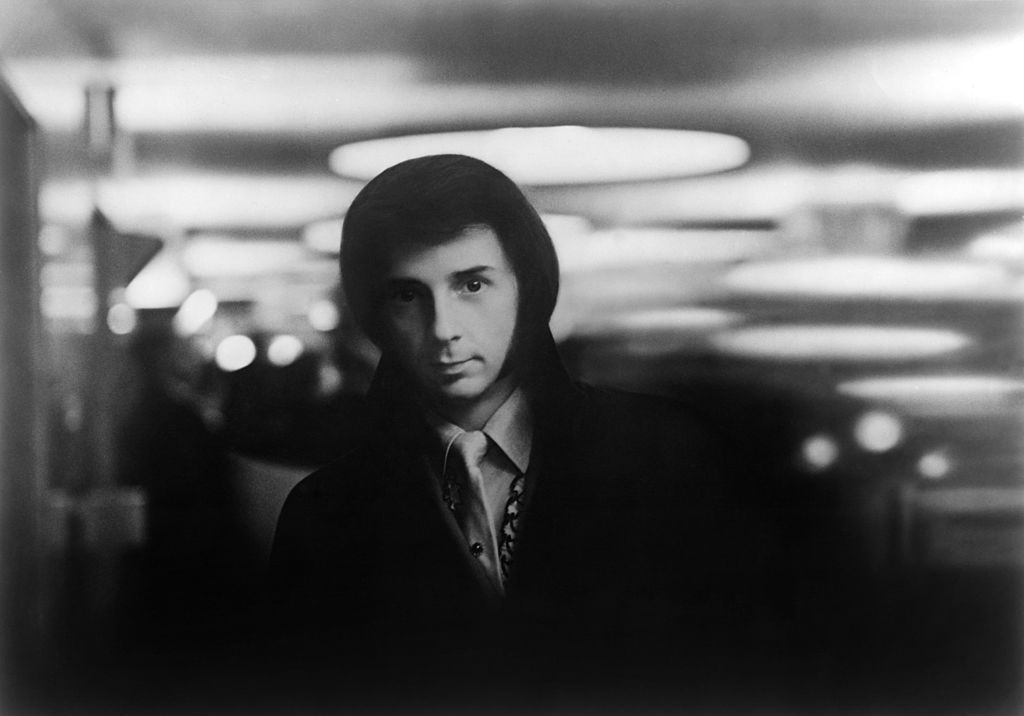
Phil Spector, Famed ‘Wall of Sound’ Producer Convicted of Murder, Dead at 81
Phil Spector, the monumentally influential music producer whose “Wall of Sound” style revolutionized the way rock music was recorded in the early 1960s, died Saturday at the age of 81. Spector’s life was tumultuous and ultimately tragic; as groundbreaking as his studio accomplishments were, those achievements were all but overshadowed by his 2009 conviction for the murder of actress Lana Clarkson.
Spector’s death was confirmed by the California Department of Corrections and Rehabilitation. “California Health Care Facility inmate Phillip Spector was pronounced deceased of natural causes at 6:35 p.m. on Saturday, January 16, 2021, at an outside hospital,” officials said in a statement. “His official cause of death will be determined by the medical examiner in the San Joaquin County Sheriff’s Office.”
Spector adopted what he famously referred to as “a Wagnerian approach to rock & roll,” calling the hit records he assembled in the Sixties for artists like the Ronettes, the Crystals, Darlene Love and the Righteous Brothers “little symphonies for the kids.” His productions were dense and orchestral, accumulating layer upon layer of guitars, horns, keyboards, strings and percussion, often with multiple instruments playing the same note in unison. The songs he selected were dizzyingly romantic, typically written by the greatest of the Brill Building songwriters, and his classic recordings relied on the brilliant contributions of a set of musicians dubbed the Wrecking Crew – drummer Hal Blaine’s four-beat intro to the Ronettes’ “Be My Baby” is one of the most distinctive song intros in rock & roll history.
Spector’s classic recordings spurred his contemporaries to become more ambitious in the studio. “He’s timeless,” Brian Wilson said of Spector in 1966. “He makes a milestone whenever he goes into the studio and this has helped the Beach Boys evolve.” A decade later, Bruce Springsteen would seek to recapture the grandeur of Spector’s productions on Born to Run. “Phil’s records felt like near chaos, violence covered in sugar and candy … little three–minute orgasms, followed by oblivion,” Springsteen said in his 2012 South by Southwest keynote speech. “And Phil’s greatest lesson was sound. Sound is its own language.”
“A genius irredeemably conflicted, he was the ultimate example of the Art always being better than the Artist, having made some of the greatest records in history based on the salvation of love while remaining incapable of giving or receiving love his whole life,” Stevie Van Zandt wrote on Twitter.
Since 2009, Spector had been imprisoned on second-degree murder charges, with the producer serving a 19 years-to-life sentence following his conviction for the 2003 murder of Clarkson, an actress who met Spector while working as a hostess at Los Angeles’ House of Blues. Clarkson accompanied Spector home to his Alhambra mansion in the early morning hours of February 3rd, 2003; soon after, Spector’s chauffeur, waiting outside the mansion, heard what he thought was a gunshot. As the chauffeur would later testify at the producer’s murder trial, Spector emerged from the mansion and said, “I think I killed somebody.”
Harvey Philip Spector was born in the Bronx on December 26, 1939. His father died by suicide when Spector was nine years old. Spector moved to Los Angeles with his mother in 1953, and within a few years, he was playing in jazz groups.
Spector formed the Teddy Bears in 1958 with high school friends Marshall Lieb and Annette Kleinbard. Spector took the title of his first production, “To Know Him Is to Love Him,” from the inscription on his father’s gravestone. It was a Number One hit, but the group’s subsequent singles, as well as their sole album, The Teddy Bears Sing!, flopped and the group quickly dissolved.
When he was 18, Spector caught the eye of veteran L.A. producer Lester Sill, who instructed Spector to go to New York and work with Sill’s former proteges, the successful songwriters Jerry Leiber and Mike Stoller. Spector co-wrote Ben E. King’s hit “Spanish Harlem” with Lieber and played guitar on the Drifters’ “On Broadway.” But it was as a producer that Spector would make his biggest impression, helming Ray Peterson’s hit version of “Corinna, Corinna,” Gene Pitney’s “Every Breath I Take” and Curtis Lee’s “Pretty Little Angel Eyes.”
In late 1961, Spector and Sill formed Philles Records. (The label name was a contraction of the owners’ first names.) Spector’s reputation as a producer ballooned as he focused his attention on girl group the Crystals, who had hits with “There’s No Other (Like My Baby)” and “Uptown.” After a third single, the controversial “He Hit Me (And It Felt Like a Kiss)” flopped, Spector fired the original Crystals, replacing them with singer Darlene Love and her backing group, the Blossoms. (Such summarily dictatorial decisions would be a hallmark of Spector’s career.) The personnel change worked: The new Crystals’ first single, the million-selling “He’s a Rebel,” became Philles’ first Number One single. Just a year after forming the label, Spector bought out Lester Sill’s share. At 21 years old, Phil Spector was a millionaire.
Spector began recording on the West Coast in L.A.’s Gold Star Studios, where he expanded his trademark Wall of Sound even further with help from the Wrecking Crew, which included such unparalleled session musicians as guitarists Glen Campbell and Barney Kessel, pianist Leon Russell and drummer Hal Blaine – with Jack Nitzsche and Sonny Bono often arranging and overseeing the recordings. Spector created four Top 10 hits in 1963: the Crystals’ “Da Doo Ron Ron” and “Then He Kissed Me,” Bob B. Soxx & the Blue Jeans’ “Zip-a-Dee-Doo-Dah” and, greatest of all, the Ronettes’ “Be My Baby,” showcasing the streetwise, seductive rasp of young singer named Veronica “Ronnie” Bennett.
Though Spector’s focus was on crafting 45s, at the end of 1963 he released his only classic LP: A Christmas Gift for You From Philles Records featured all the label’s artists and consisted largely of well-known Christmas songs, such as the Ronettes’ ecstatically reworked “Santa Claus Is Coming to Town.” The standout track, however, was a new song written by Spector, Jeff Barry and Ellie Greenwich: Darlene Love’s “Christmas (Baby Please Come Home),” which has become a holiday standard in its own right.
Spector had become rock & roll’s first superstar producer – “the first tycoon of teen” as a 1964 Tom Wolfe profile famously dubbed him. Spector held his own against the British Invasion of 1964, producing even more hits for the Ronettes, and the following year, he turned his attention to a male duo called the Righteous Brothers. The group’s “You’ve Lost That Lovin’ Feeling” sold over 2 million copies and became Philles’ third Number One hit.
But Spector’s productions were increasingly time-consuming and ambitious – some even said bloated. In 1966, the baroque pop epic he considered his masterpiece, Ike & Tina Turner’s “River Deep — Mountain High,” stalled at Number 88 in the U.S. (though it would hit Number Three in the U.K.) A resentful Spector secluded himself in his Hollywood mansion for two years, emerging only to appear briefly as a drug dealer in the classic counterculture film Easy Rider. In 1968, he married Ronnie Bennett; in her 1990 memoir, Be My Baby: How I Survived Mascara, Miniskirts, and Madness, or My Life as a Fabulous Ronette, she depicted Spector as an abusive husband prone to eccentric if not outright insane behavior.
“[Phil] took singing away from me and it was devastating because I had no idea that I would never record,” Ronnie Spector told Rolling Stone in 2016. “I had no idea I would never perform again, which was my life. I was in shock with that because here’s a person who wrote your records and produced them. … And then, you’re never gonna sing again. … I never knew ‘What goes around, comes around,’ until he went to prison. Then I knew what it meant. Because I was in prison in the mansion and I couldn’t even get out. For seven years, I didn’t go anywhere.”
Spector returned to the music world in 1969. A new Ronettes single, “You Came, You Saw, You Conquered,” flopped, but that same year he also released Sonny Charles and the Checkmates’ “Black Pearl,” a Number 13 hit. Now securely back in the production saddle, Spector hooked up with the Beatles. He produced John Lennon’s solo hit “Instant Karma!” and was given the task of creating an album out of the group’s abandoned Get Back sessions. The result was the Beatles final studio album, Let It Be.
Some of Spector’s critics, including Paul McCartney, were unimpressed with his string-heavy treatment of tracks such as “The Long and Winding Road.” But McCartney’s bandmates were happier with Spector’s work. George Harrison not only asked Spector to produce his triple-album, All Things Must Pass, but Lennon brought him on to co-produce The Plastic Ono Band and Imagine, albums that had an uncharacteristically spare sound for Spector. Fittingly, Lennon also had Spector, the creator of the greatest rock Christmas album of all time, produce his single “Happy Xmas (War Is Over).”
In 1974, Spector barely survived a car crash in Hollywood. He was thrown through the windshield of a car and nearly declared dead at the scene of the accident; it took hours of surgery to keep him alive – as well as more than 700 stitches in his head to his face and more than 400 to the back of his head.
Prior to his car accident, Spector had formed a new label, Warner-Spector, a subsidiary of Warner Brothers, for which he recorded Cher, Harry Nilsson, Darlene Love and a young singer named Jerri Bo Keno, whom he’d hoped to make a star. After a falling out with Warners, he formed Phil Spector International, reissuing an album of his classic Sixties recordings that had long been out of print. The label’s most anticipated new release was to be a comeback for both Spector and Dion DiMucci, but Born to Be with You failed both critically and commercially.
Spector’s next two albums were for cult artists seeking a fuller production sound, and both albums were met with skepticism from the artists’ fans. In 1977, Spector produced Leonard Cohen’s Death of a Ladies’ Man, a marked contrast to the singer-songwriter’s more somber acoustic affairs. In 1980, after four classic let-it-rip albums, the Ramones brought him in to provide a makeover on End of the Century. Legend has it that Spector carried a gun during the Ramones sessions and even threatened band members.
By the time he entered the Rock and Roll Hall of Fame in 1989, Spector had effectively been retired from the music business for nearly a decade. (He was inducted by both Ike and Tina Turner; Spector had told neither that the other had also been invited.) In 1995, he agreed to produce a Celine Dion album, but then pulled out of the project, citing his dislike of the Canadian singer’s management.
Spector spent much of the next decade in court. He successfully fought to retain the U.K. copyright to the music and lyrics of “To Know Him Is to Love Him” in 1997. Three years later, though, a U.S. court ordered him to pay Ronnie Spector and the Ronettes $2.6 million, primarily for back royalties. He had become a gloomy figure around this time. “People tell me they idolize me, want to be like me, but I tell them, ‘Trust me, you don’t want my life,’” he said. “I’ve been a very tortured soul.” But the superproducer’s most life-changing legal battle was yet to come.
In 2003, police were called to Spector’s mansion in Alhambra, where Clarkson was found dead from a gunshot wound. Despite telling his chauffeur that “I think I just shot her,” as the chauffeur told police in an affidavit, Spector later recanted this, telling authorities and saying in interviews that Clarkson “may have accidentally taken her own life.” Spector was arrested and charged with second-degree murder.

Phil Spector at his 2007 murder trial
Getty Images
The producer had kept out of the public eye for years, and now, during a televised trial, he presented a startling image with his enormous, unkempt nimbus of curly hair. During the trial, several women serving as witnesses for the prosecution testified about Spector threatening them with a gun; in each instance, Spector “was romantically interested in the woman, but grew angry after the woman spurned him,” the prosecution argued.
Following a hung jury that leaned heavily toward a guilty verdict in September 2007, Spector underwent a second murder trial that begin in October 2008, which resulted in a conviction on second-degree murder charges. In 2009, Spector was sentenced to 19 years to life in prison, where he remained until his death.
Additional reporting by Daniel Kreps



